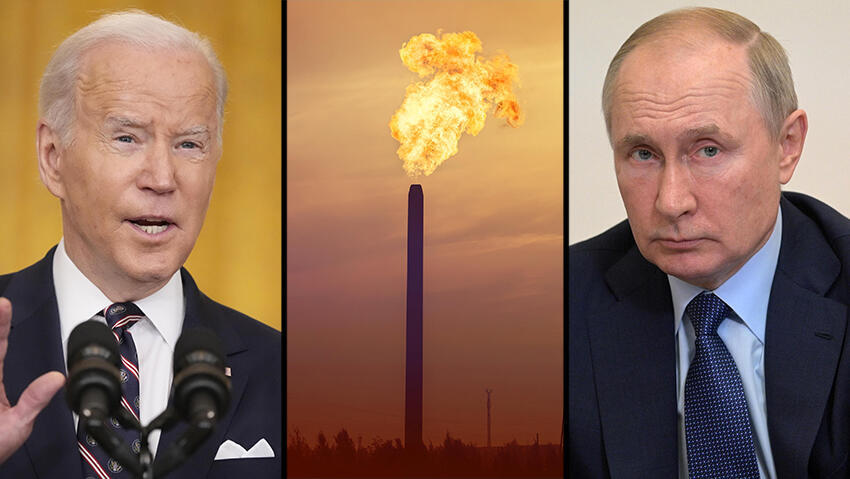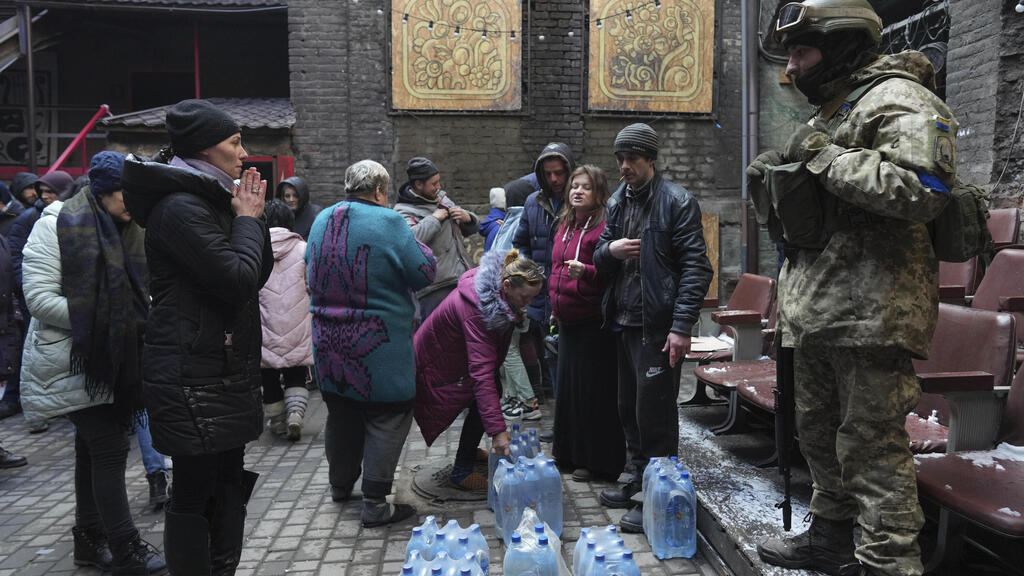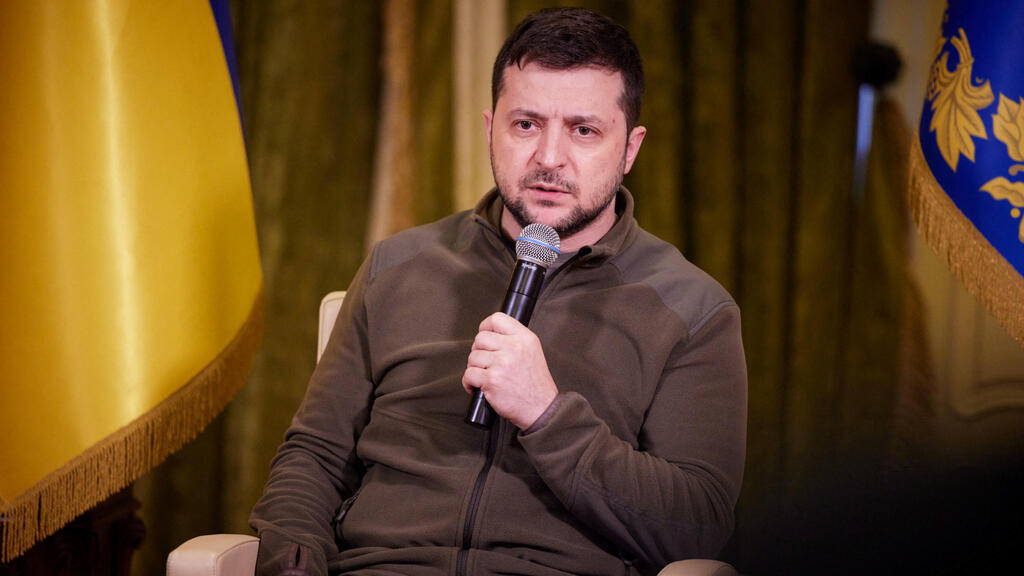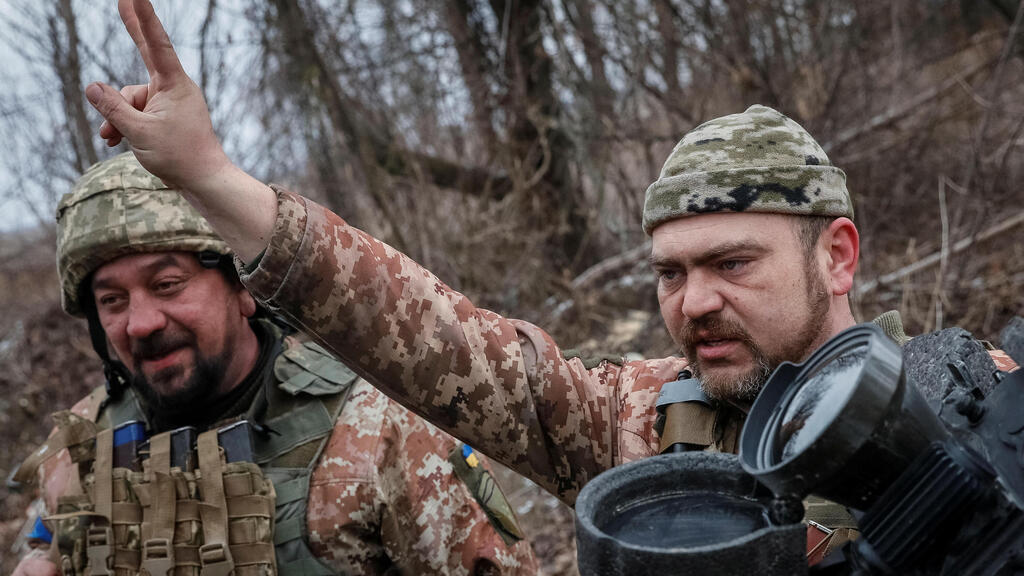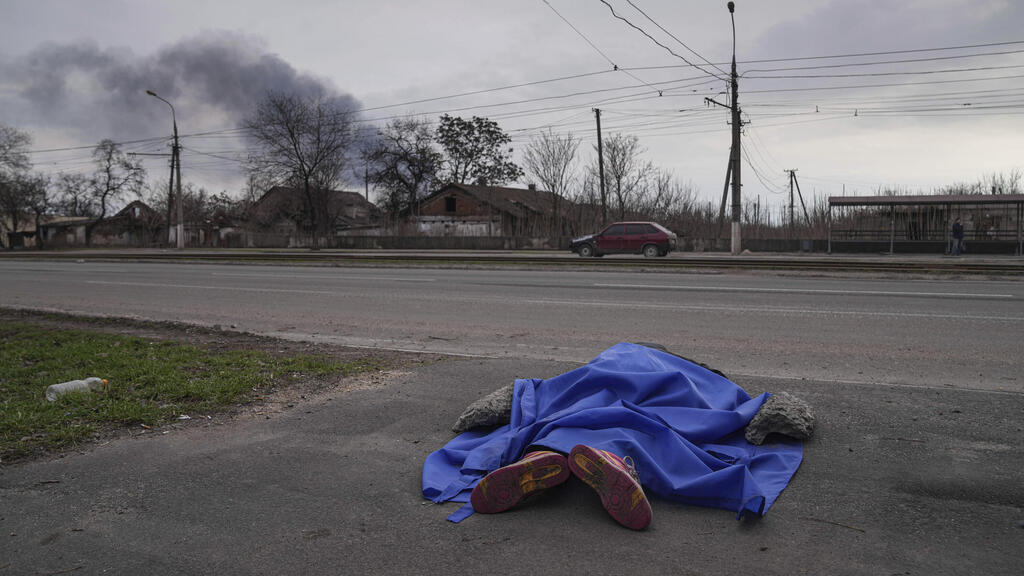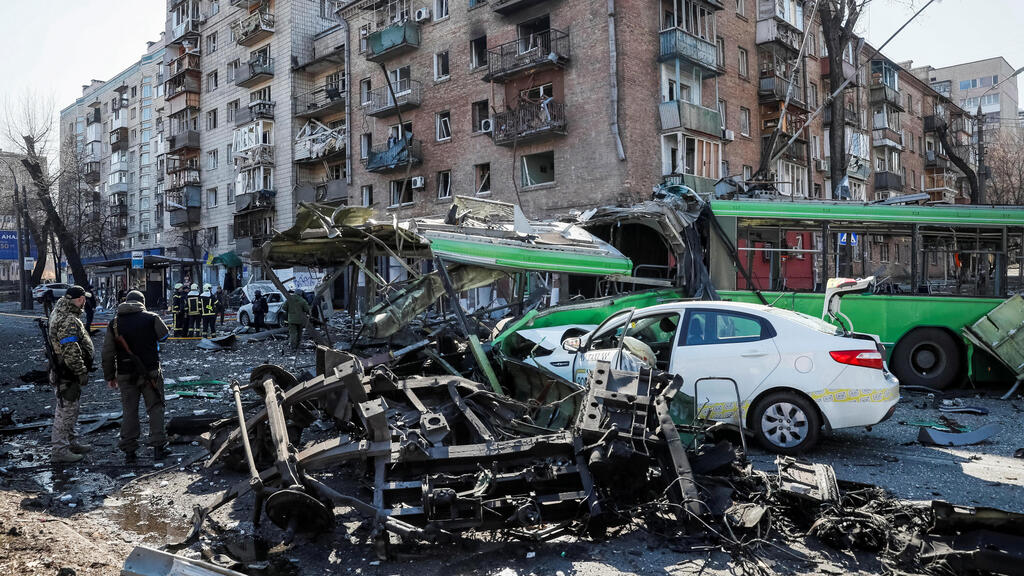Getting your Trinity Audio player ready...
The West imposed no less than 55,322 sanctions on Russia. Half of these sanctions - the gravest ones, mind you - were imposed only after Moscow started its brutal invasion of Ukraine.
Since the start of the offensive, Russia has surpassed Iran when it comes to sanctions, which has no less than 32,616 sanctions imposed on it and its economy. And if the U.S. administration is to be believed, the sanctions on Russia won’t end there.
U.S. President Joe Biden has all but fallen in love with the boycott on Moscow - since it doesn't require sending troops to Ukraine - it has the approval of the American public, it serves the American interest in the long run, all while its economic price remains ultimately negligible.
And so, the Russian president and invasion mastermind, Vladimir Putin, finds himself faced with a paradox.
The worst thing that could currently happen to Putin is the collapse of the Ukrainian resistance. What will happen then? Ukrainian President Volodymyr Zelensky and his ministers will flee to the West, all while Russian tanks enter Kyiv where they will be forced to establish an occupation regime.
Yes, the war will end, but there will be no agreement. The West will not repeal its sanctions and Putin will find himself dealing with severe economic hardship at home, with being a pariah abroad, and with a hostile, revenge-seeking population in Ukraine.
Only a West-sponsored agreement will bring Russia back into the global fold. Does Biden have an interest in sponsoring such an agreement? Not likely.
Such an agreement will require a compromise. A compromise would expose Biden and his administration to claims that they forced Ukraine's democratic government to submit to the whims and dictates of a war criminal.
While ultimately cruel, it is convenient for Biden to let the Russians wallow in the Ukrainian mud. Sure, the White House will provide the Ukrainian army with weapons that will prolong the war, but not with weapons that will decide it.
There are wars in which both sides lose. Putin thought the invasion of Ukraine would restore Russia's status as a superpower on par with the United States and China. He believed that Russia’s military might and resilience will both compensate for any economical drawbacks and hardships - he was wrong.
Ukraine's Zelensky, meanwhile, thought that his path to the West was all but paved: if not to NATO, then at least to the European Union. He did not believe the U.S. intelligence warnings about a Russian invasion, and the price his people are now paying, both in blood and property, is enormous.
Neither side has an exit strategy. Putin cannot bring his army home without any achievements, while Zelensky cannot simply allow Putin to have said achievements.
On the diplomatic side, no large-scale mediator - such as the Americans or Chinese - has yet to step forth. Just like with the Israeli-Palestinian conflict, everyone knows what an agreement will contain, but no one is actually willing to facilitate it.
Israel has a somewhat discernible influence in this difficult story. Prime Minister Naftali Bennett's mediation efforts have certainly bettered his image, both at home and abroad, and have effectively allowed Jerusalem to avoid picking a side - for now.
This is a smart move - albeit one with an exceedingly short life span - which has allowed Israel to avoid complying with the international sanctions imposed on Russia and walk away unscathed.
Contrary to popular belief, though, Israel is not unique, nor does it have any advantage in the diplomatic arena. Peace talks can be held in New Delhi, Geneva, Ankara, Cairo, or ten other capitals, just like in Jerusalem. The location is not the problem.
Israel is no saint when it comes to the issue of refugees, either: The prevalent panic about their arrival is unwarranted. Most of those who have arrived at Israel’s gates from war-torn Ukraine are children, women and the elderly - as the men are forced to stay behind and fight the invading Russian forces.
Meanwhile, the countries of the EU - who are absolutely starved for additional workers - welcome these refugees with open arms, mainly because those who come from Ukraine are Christian, educated and white.
Non-Jews who make their way to Israel are those who are related in some way to the Ukrainians Jews who came here under the Law of Return. And according to the latest outline, they will be allowed stay with their relatives until the situation in Ukraine calms down. They will not, as some fear, flood the country.
Interior Minister Ayelet Shaked failed to realize that fact until Sunday, and has made every conceivable mistake along the way.
8 View gallery


Ukrainian Jews making their way to Israel amid the Russian invasion
(Photo: Ricky Carmi)
Her decision to not to allow entry to some non-Jewish refugees at the start of the war was a mistake, her decision to demand a deposit from each refugee was a mistake, imposing a cap on the number of refugees who can enter the country was an utter insult, same as their treatment at Ben Gurion Airport, which was simply outrageous.
No wonder she had to backtrack on all her demands.
Her excuses for said mistakes made no sense, either. First, she reasoned that there are already 20,000 Ukrainians living in Israel illegally - many of whom work in nursing and have lived here for years. Xenophobia and opacity are the only reasons one can use them as an excuse not to let in more refugees. Her second excuse was that Israel already welcomes those who come from Ukraine, albeit only the Jews.
These arguments put Shaked face to face with the principle Zionism, which sanctifies Aliyah in all its forms.
When Israel brought masses of Jews from Morocco, Russia, Ethiopia or Yemen, it did not perceive it as doing them a favor.
The same thing applies to Ukraine, Israel is not doing anyone a favor when it welcomes the besieged country's Jewry, which has the right to make a home for itself in the Jewish state, same as any other Jewish community.
Anyone who does not believe in that, does not believe in Zionism.


